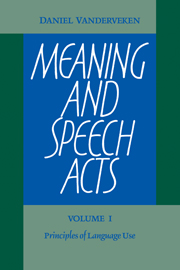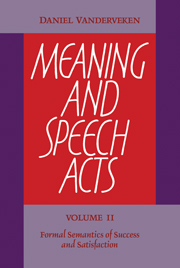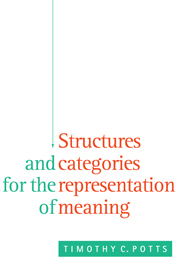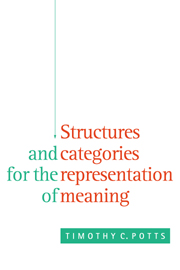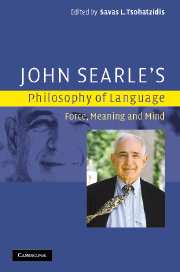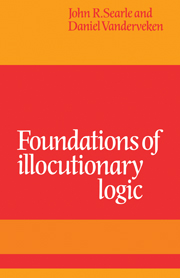Meaning and Speech Acts
The primary units of meaning in the use and comprehension of language are speech acts of the type called illocutionary acts. In Foundations of Illocutionary Logic John Searle and Daniel Vanderveken presented the first formalized logic of a general theory of speech acts. In Meaning and Speech Acts Daniel Vanderveken further develops the logic of speech acts and the logic of propositions to construct a general semantic theory of natural languages. Volume I, Principles of Language Use, explains the general principles that connect meaning, reason, thought and speech acts in the semantic structure of language. It presupposes no detailed knowledge of logical formalism, and will be accessible to a large readership of students and scholars from philosophy, lingustics, cognitive psychology and computer science. Volume II, Formal Semantics of Success and Satisfaction uses the resources of philosophical and mathematical logics to develop a formalization of the laws of the semantic theory advanced in Volume I. It will be of interest to theoretical linguists and those involved in mathematical logic and artificial intelligence.
Product details
March 2009Paperback
9780521104906
256 pages
229 × 152 × 15 mm
0.38kg
Available
Table of Contents
- Acknowledgements
- Part I. Speech Act Theory and Formal Semantics:
- 1. The primary units of meaning
- 2. Illocutionarily significant sentence types
- 3. Intensional logic and illocutionary logic
- Part II. A General Success and Truth Conditional Semantics:
- 1. Main features of general semantics
- 2. Philosophical interest
- 3. Criteria of adequacy
- 4. The place of general semantics in semiotics
- Part III. On The Logical Form of Propositions:
- 1. Historical remarks
- 2. Propositions and truth values
- 3. Propositions and illocutionary acts
- 4. The law of propositional identity
- 5. Logical operations on propositions
- Part IV. On The Logical Form of Locutionary Acts:
- 1. Analysis of the notion of illocutionary force
- 2. Recursive definition of the set of all illocutionary forces
- 3. The semantic concepts of success and satisfaction
- Part V. Fundamental Laws For Meaning and Use:
- 1. Laws for illocutionary points and sentential types
- 2. Laws for illocutionary forces
- 3. Laws of entailment and analyticity
- Part VI. Semantic Analysis of English Performative Verbs:
- 1. English assertives
- 2. English commissives
- 3. English directives
- 4. English declaratives
- 5. English expressives
- Conclusion
- Notes
- Appendices.

